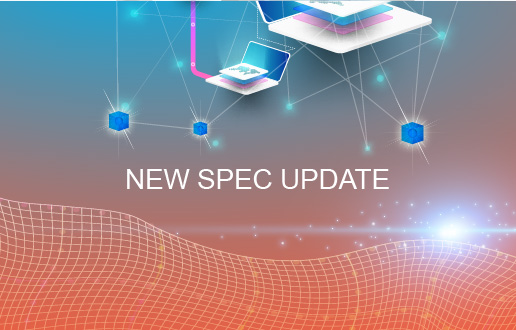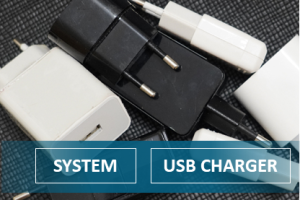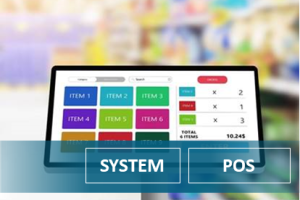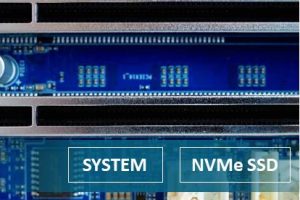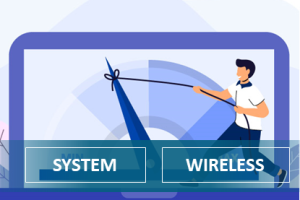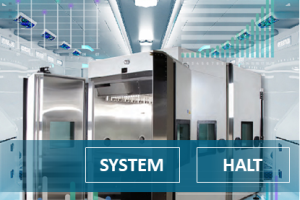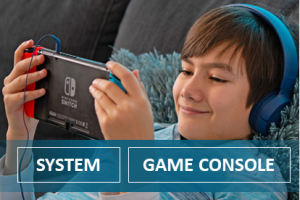Ever since USB-C came into public, it has not only plug and play feature as usual, but also evolved as a universal driver supported by Windows OS. With extra 15W power and USB power delivery technology, USB devices become more popularized. Now because of the unique properties of USB-C, it made the communication between USB devices more complicated than it ever was and increased the difficulty of USB-C product development.
Read More: In-Depth Exploration: Analyzing the HDR Potential Risks of USB-C Dock & USB-C HDMI Adapter Products
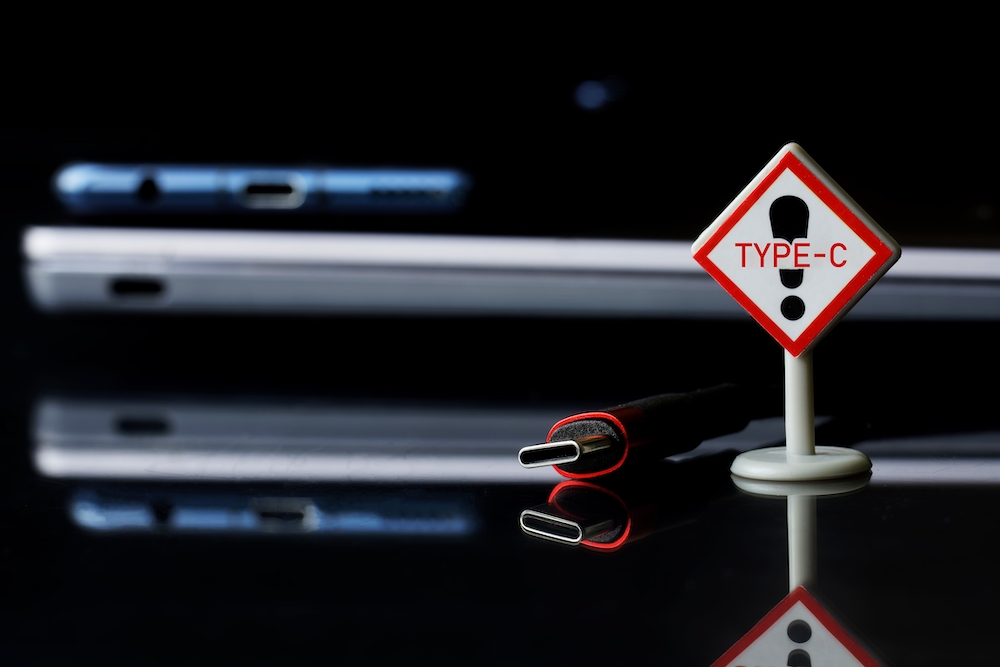
Risks of USB-C Devices and Case Study
USB connections revolve around three main types of products: hosts, cables, and devices. When designing these three kinds of products, we have to consider their signal transmission quality, stability of power source, and correct communication between hosts and devices. In the past age of traditional USB-A, power source is the easiest one to identify. Hosts and power source are a pair, devices and power consumption are a pair. It has an injective function relationship, so it is also easier on the user scenarios.
But when it comes to USB-C, we need to introduce a new concept – Dual Rate Power (DRP). The most common situation now is the device can charge the portable host (with battery). If the product supports USB power delivery, then it can quickly full-charge the battery by using standard power range (SPR): 100W, extend power range (EPR) 240, this kind of large wattage output. Therefore, manufacturers must exercise great caution and careful consideration in the design of power circuits layout.
It is hard to imagine only on a theoretical basis. So now we will explain by a real case, and to demonstrate how Allion lab assists our clients to find potential problems and present solutions.
Case Study
- Host is a Notebook with battery and a USB-C port, and its USB-C port supports USB power delivery and DisplayPort Alt. mode.
- Device is a large sized monitor with a USB-C port, and its USB-C port supports USB power delivery and DisplayPort Alt. mode, it also provides 100W power supply.
- When the host connects to the device by USB-C cable, Its power supply functions normally as Vbus 5V at the beginning. Audio and video transmission through DisplayPort Alt. mode works finely as well.
- But when the power supply voltage exceeds 5V, before long, the device end will automatically drop and undergo re-identification.
- After re-identification, if the Vbus voltage is at 5V, then it works normally. Otherwise it will repeatedly drop and identify when the voltage is higher than 5V.
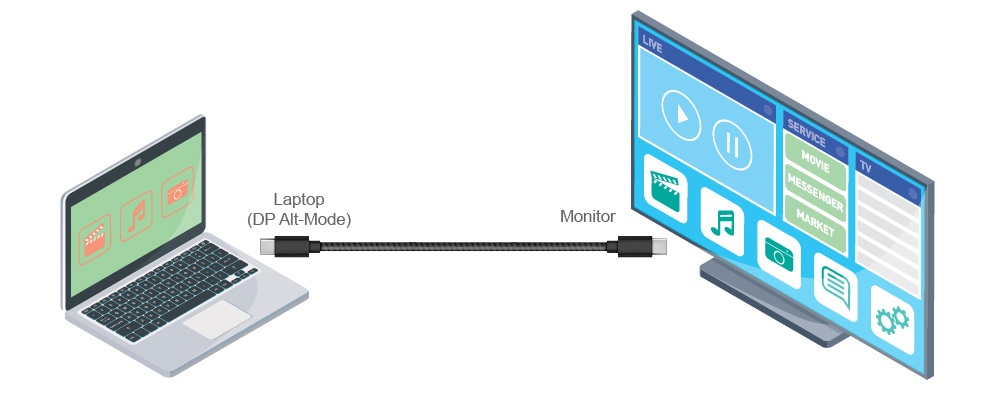
Case Analysis
By the analysis of Allion lab, we figured out the problem is “when Vbus voltage higher than 5V, its Vbus slew rate is too fast and beyond 30 mV/us maximum (designated value)” So the host, notebook, will mistake OVP, then the whole environment will reset again and again. As shown in the testing data in figure below.
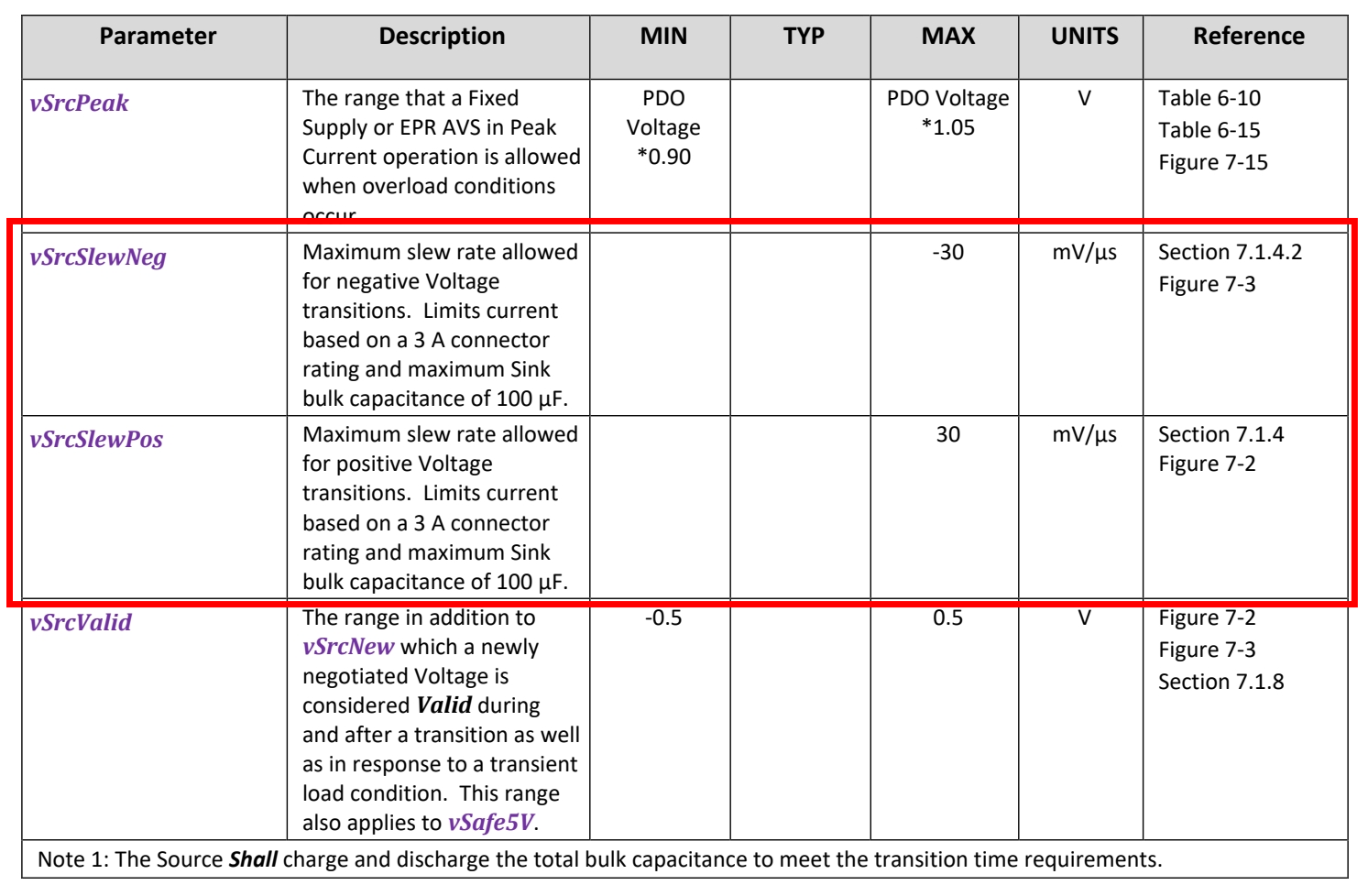
To this problem, although the testing items of USB includes Vbus slew rate, there is no official definition of specific testing methods. It also results in different test methods by different testing labs, and the results are not precise and universal. Allion lab made a suggestion to the association, then the association unified the testing methods. Now we can test Vbus slew rate by the four values below in the figure to know if it complies to the standard to avoid related problems.
- TEST.PD.PS.SRC.1 Multiple Request Load Test
- TEST.PD.PS.SRC.2 PDO Transitions
- TEST.PD.PS.SNK.2 Initial Sink PDO Transitions Post PR Swap
- TEST.PD.PS.SNK.3 Multiple Request Load Test Post PR Swap
Faster, Easier, Better: The Most Trusted USB Product Testing Consulting Service
As a professional testing and consulting company, Allion is not only an official certification laboratory authorized by the USB-IF, but we also utilize our decades of experience to conduct customized testing for various clients, providing them with the best service we can.
With industry-leading capabilities, Allion designs customized testing plans for USB-related products, providing a faster, easier and better integrated consulting services and solutions for our clients and helping them eliminate issues they may encounter. This ultimately reduces the possibility of users returning their purchased products.
USB Product Testing Consulting Service
- Customized Testing and Consulting Services
- Compatibility Test
- User Experience Test
- Competitive Analysis and Quality Improvement Consulting
- USB Certification Test
Faster
Professional testing technology and strong real case experience, Allion lab provides quick and precise third party evaluation, to shorten your design and examination time. We also have a complete range of testing equipment that can ensure compatibility amongst different kinds of USB products, helping you with your quality control along the way.
- Quickly build a USB-related testing laboratory
- Quickly design development verification strategies
- Quickly obtain certification planning
Easier
Allion has a complete range of hardware certification testing equipment and testing environments. With our testing solutions, we can ensure each client’s certification process is qualitative, quantitative, and reproducible. Through Allion’s professional support, we can assist our clients in obtaining accurate test results easily, ensuring the quality and performance of their products.
- Provides more accurate results
- Provides professional issue isolation and debugging support for our clients to make product development more convenient.
Better
With the support of a technology database and testing service experience accumulated over the years, Allion lab have assembled a team of experts in relevant technical fields to understand how to design quantitative testing methods and validate user experiences. This ensures that your product not only meets regulatory requirements but also aligns with user expectations, allowing it to perform optimally in real-world applications.
Allion’s professional teams can also provide suggestions for product modifications, assist with supplier management, and help with specifications requirements from international associations during product development. This further enhances the quality of our client’s products, ensuring high standards that comply with international specification requirements.
- Provides a better and more complete experience for brands to establish ODM ecosystem plans
- Provides more complete user scenario testing solutions
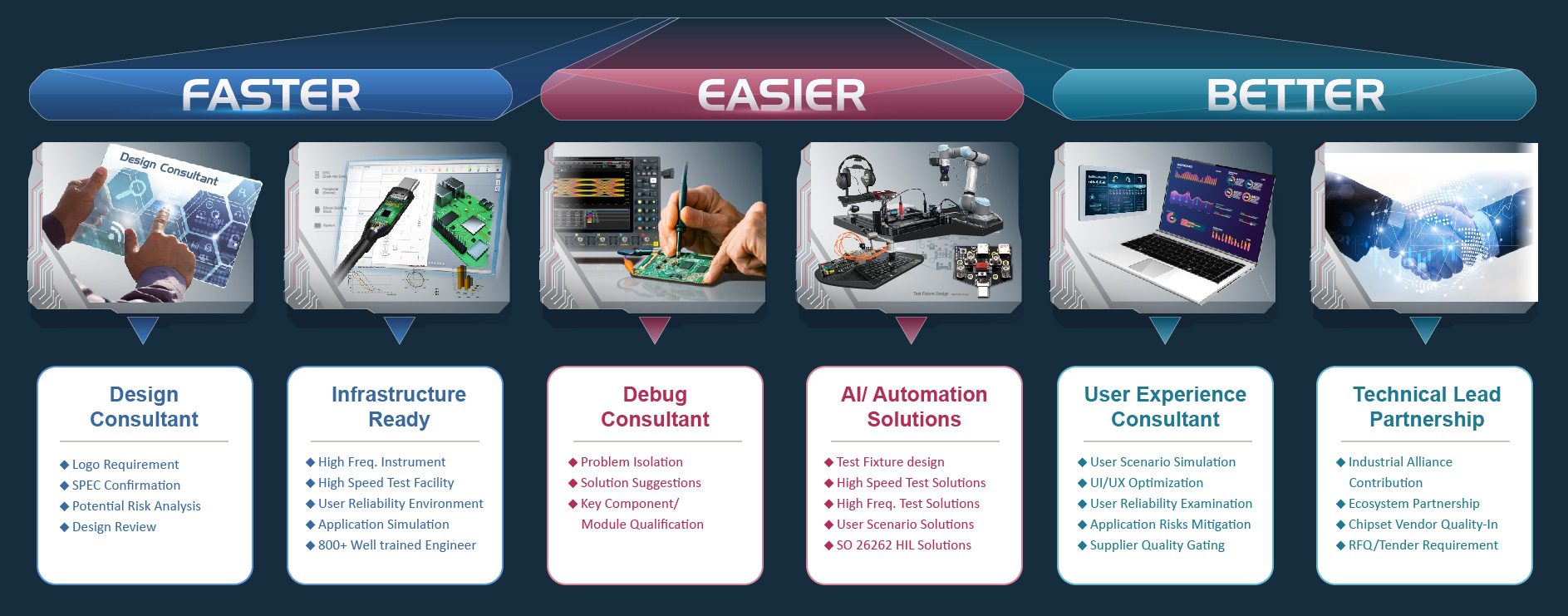
If you have any further needs for testing, verification, or consulting services related to the USB product, please feel free to explore the following services online or contact us through the online form.
































